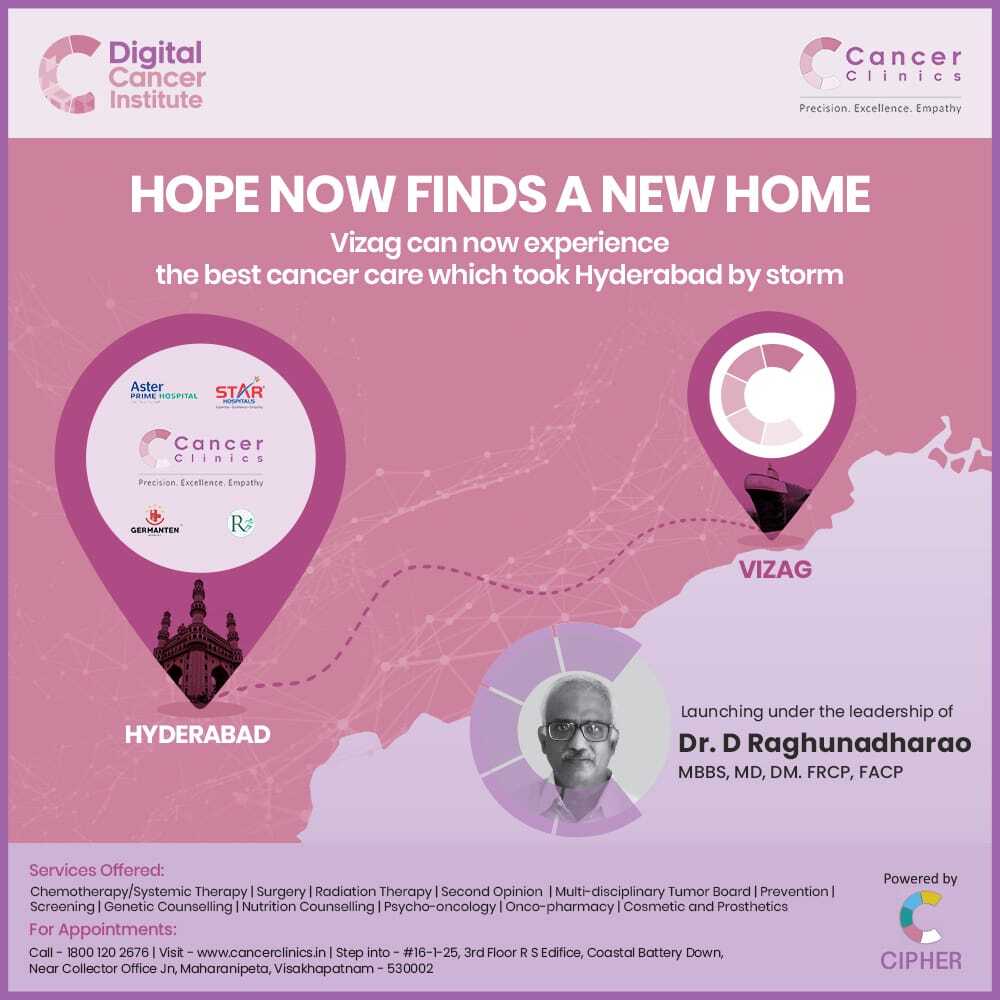Cancer is known to be the leading cause of death worldwide. In 2018, it is has accounted for an estimated 9.6 million deaths globally. It is predicted that by 2040, 27.5 million new cancer cases would be diagnosed worldwide. India is not far behind. Cancer is one of the major causes of death even in India. In 2018, 4.3 million Indians were estimated to have cancer and the incidence of cancer is estimated to increase by 25% by 2020. This is a big enough number for us to start talking and knowing about cancer. WHO’s cancer report has shown that oral, lung, oesophagus and colorectal are common in men in India while the most common cancers in women are breast, cervical and ovarian.
CANCER MYTHS
We all believe a lot of things about cancer. We think we know enough but that’s not true. There are certain myths we have about cancer. Firstly, we think that cancer is non-curable, and that cancer means death. It is an untrue myth that a cure for cancer has not yet been discovered. The reality is that cancer research has advanced over the years and several forms of cancer, if detected at the right stage, can be treated without reoccurring. In fact, if detected early cancer is more curable than other chronic diseases like hypertension and diabetes. One third of common cancers can be prevented and treated!
Secondly you might think that no one in your family has/ had cancer and hence you don’t have to worry. But that may not be entirely true. Cancer can be caused by many factors like tobacco use, exposure to chemicals and radiation among others. So, though there is a minor aspect of heredity in cancer, it just amounts to 5% to 10%. Comparing this probability to the number of instances of cancer, it is important to note that the primary risk of cancer is owing to your lifestyle and habits.
Thirdly, ‘I do not have any bad habits and so I won’t get cancer’ is the saying that goes. Research has shown that 10-15% of lung cancers are those that occur in non-smokers. The Human Papilloma Virus with high risk strains is said be associated with cervical, oral and genital cancers. This virus is present in every individual who has been sexually active in their life. There are other risk factors that could cause cancer – such as, pollution, UV rays, radon gas, wood smoke etc.
Lastly, you might think that while on treatment you should be on rest or treatment just worsens the condition and hence you are better off without treatment. This is not entirely true. You can experience some side-effects while on treatment. You might feel tired, your movements might slow down, and you might lose weight. Most of the side-effects you experience are temporary and reversible. Research has also shown that exercise as a treatment form not just keeps you active physically but also improves your quality of life. You can still go work, hang out with friends, go for movies or pursue your interests. Cancer does not stop your life!
WHY IS IT IMPORTANT TO KNOW ABOUT CANCER?
With the increasing incidence of individuals affected by cancer, it is not guaranteed that you or I would be immune to the disease. We always want to believe that cancer is something that cannot happen to us. It is the ‘others’ disease and as a result we tend to avoid talking about it and ignore its symptoms. Our bubble bursts when someone close to us or for that matter oneself is diagnosed with cancer, which leaves us baffled and in a state of panic. While there is no hard and fast rule which can protect us from cancer, we can always reduce our risk of getting it in the first place. There is no rocket science behind it. Simple and significant lifestyle changes does the magic and these changes can be easily incorporated into our daily lives along with regular screening.
CANCER IN INDIA
Non-communicable diseases account for 60% of the mortality in India and cancer has the highest death to prevalence ratio of about 18%. Most cancers in India are diagnosed late either because we tend to ignore its symptoms or due to lack of accessibility to healthcare systems in rural and remote areas.
With 4.3 million Indians suffering from cancer at any given time, the government of India has taken a step ahead to provide a holistic approach to care, that covers both prevention and health promotion. In the 2018-2019 general budget, the government announced two initiatives under the Ayushman Bharat scheme. Firstly, the Health and Wellness Centers aim at bringing healthcare closer to the homes of people and provide a comprehensive care programme for all non-communicable diseases. Secondly, the National Health Protection Scheme aims at providing cover for over 10 crore vulnerable families at secondary and tertiary care hospitals.
Cancer, the disease persay is a combination of many things - it maybe physical stress or mental stress which tend to come in any part of cancer treatment journey. Your treatment journey may or may not have some battery of concerns apart from your own attributes because of the cancer; it may be a social or familial entity. During this time of your life journey making treatment decisions about treatment care is your choice, no matter what decision you take about your cancer care, it is important for you to know that support is available to help you manage your care. Having said that the numbers are increasing and the mortality rates in cancer are high, it is important to know that cancer is not inevitable. With proper guidance and knowledge, cancer cannot just be prevented but also treated if diagnosed. Healthcare providers have found success in preventing and treating cancer.
